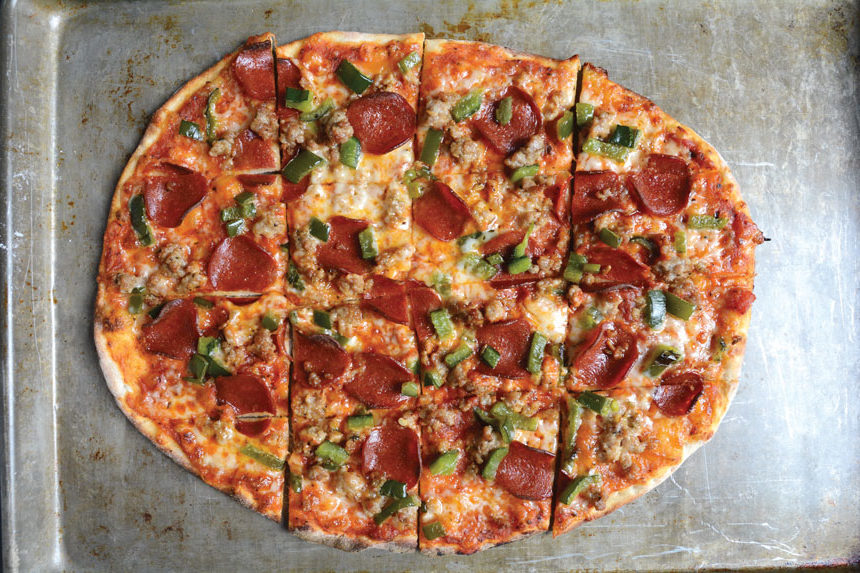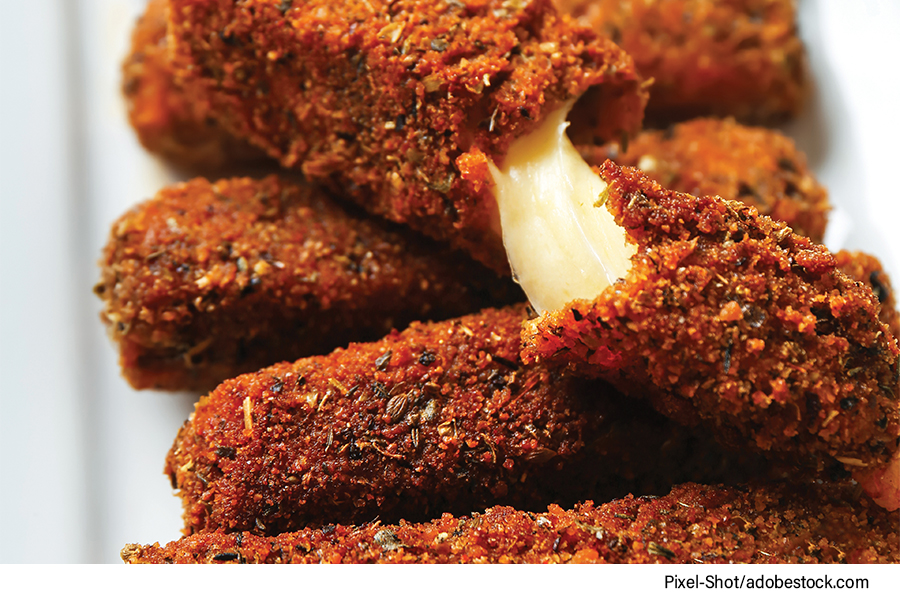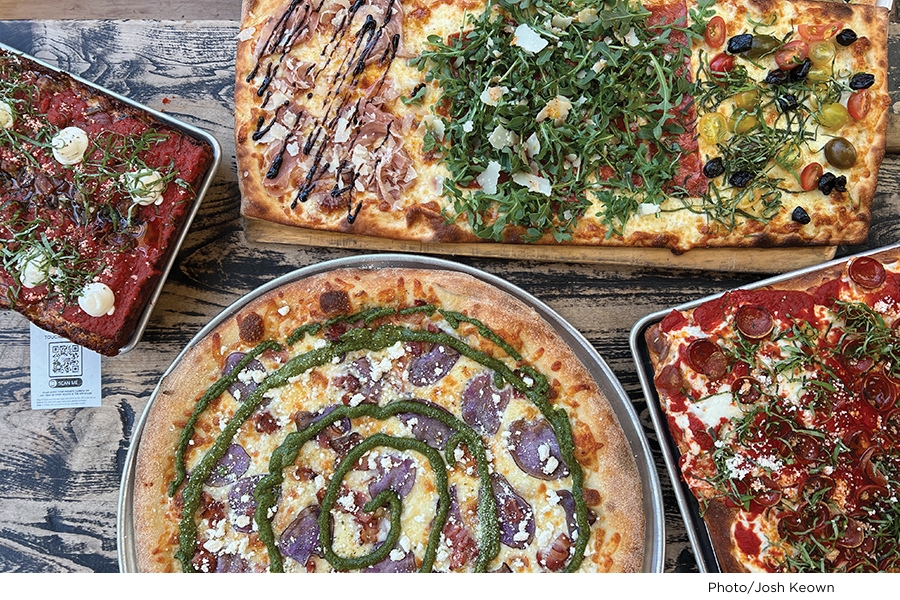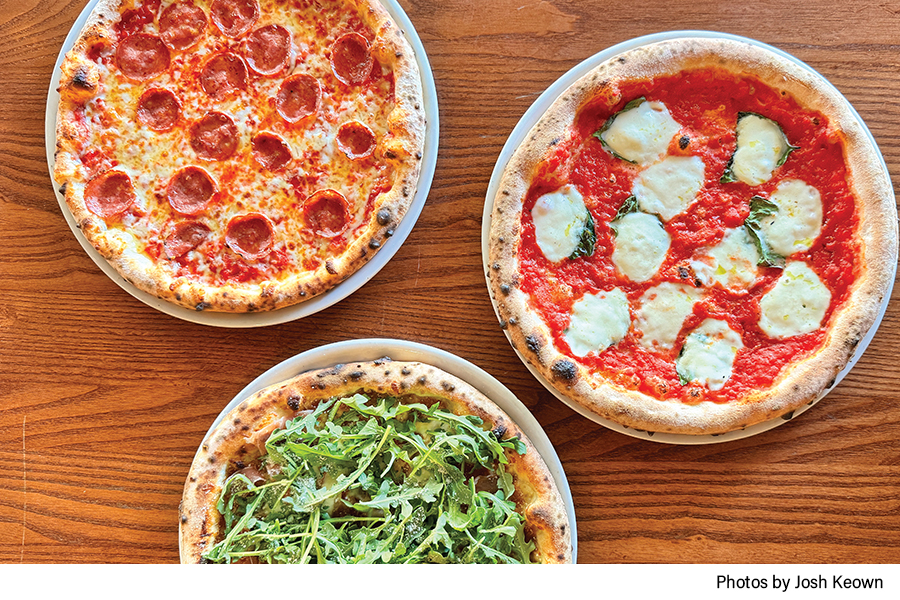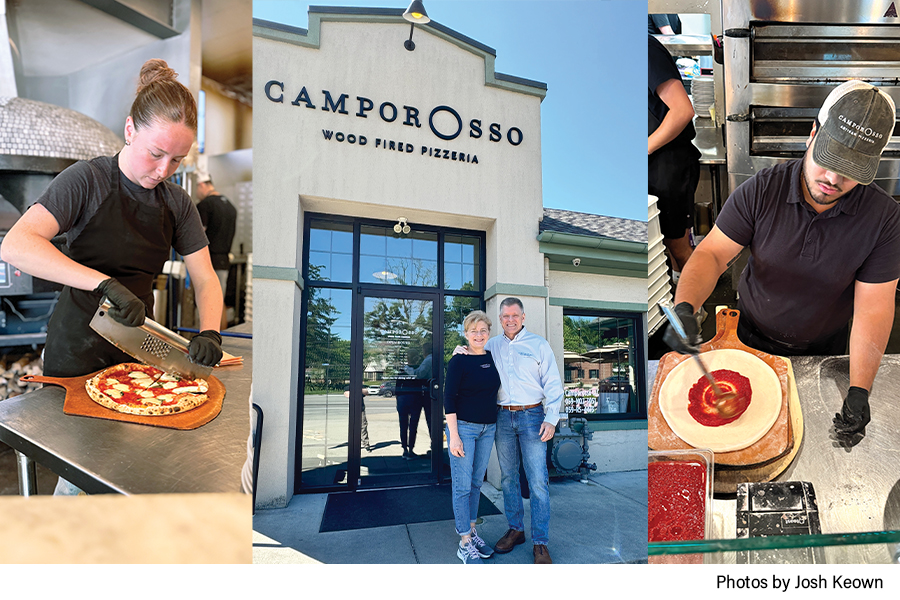
When Paul Hibler speaks about his company’s focus on fresh, local, seasonal ingredients, he’s not hitting talking points with marketing-speak. No, he means it. Really means it. In Los Angeles, a prominent farmer’s market makes it easy for commercial chefs and home cooks alike to utilize the best of what’s in season, and Hibler says doing just that is part of what makes Pitfire Pizza the thriving operation it has become today. Ranked No. 12 on our annual Hot 100 Independents list, Pitfire currently has four stores that combine to produce $8.1 million in revenue. Hibler cites the fresh fare as a major driver, alongside an emphasis on service. “Our stores are in neighborhoods,” says Hibler, “and that allows us to get to know our guests and form lasting relationships with them.” Making Pitfire a place locals can call their own is key to the company’s growth. Pitfire stores are designed to be transparent and welcoming. An industrial look (open beer kegs, exposed ductwork, etc.) is made inviting by the use of warm colors and the center placement of the wood-burning oven, which serves as the operation’s focal point. “We like it to be open,” says Hibler. “We want it to be a place where a family can relax, have a good time and enjoy the food.”
While the pie steals the show, the menu extends well beyond pizza. Pitfire’s dishes are well executed and far from ordinary — as they should be when the kitchen work is so labor intensive. Practically everything on the menu is made in-house, from dough to meatballs to salad dressings. The offerings and specials change according to what’s in season, and Pitfire’s volume and purchasing procedures guarantee freshness. “We use simple ingredients and take a lot of pride in handcrafting our pizzas and making items from scratch in the restaurants,” Hibler says. “That’s part of our culture, and our culture is something we really feel strongly about and emphasize. It’s important to us to not just serve excellent food, but to be the kind of place where talented people want to work and feel like they’re wanted and part of something special. We’re doing a lot of innovative things, really, in that regard.” The pizza starts with a wonderfully fire-singed crust that is pillowy and almost Neapolitan in nature. In fact, the pies at Pitfire sit somewhere in that narrow gap between what defines a Neapolitan crust and what defines a New York-style crust — all with a California twist, of course.” “Our dough is very rustic and simple,” Hibler says. “We make it with only three ingredients — flour, yeast and water. That’s it. That’s all you need.” The crust at Pitfire is topped with nothing but the most premium ingredients, including sausage that is made daily at a local Farmer’s Market and artisan pepperoni and salume that are handmade at a deli in San Francisco. Hibler says Pitfire aligns itself closely with the principles of the popular Slow Food Movement … yet endeavors to serve it fast. Some of the company’s best sellers include “The Burrata Pie,” which features the creamy cheese after which it is named, along with tomato sauce, wild arugula, caramelized onion, hazelnut and a pesto drizzle. Another fan favorite is the “Pitfire Sausage” — sweet fennel sausage, tomato sauce, fontina and mozzarella cheeses, red onion and Sicilian oregano.
Hibler and his business partner, David Sanfield, are no strangers to the art of cooking. Before opening Pitfire Pizza in 1999, they cooked in various restaurants.They also had a catering company that landed some pretty interesting, high-profile cooking gigs — it fed crews and talent on more than 200 movie sets in 30 U.S. states and Canada. “We had these great mobile kitchens and would take them wherever the filming was taking place,” says Hibler. “We spent months feeding the people who worked on the set of the movie ‘Titanic.’ ” That experience has certainly helped Pitfire’s catering endeavors. The company has five simple catering options on its menu, priced from $75 to $185 and designed to feed anywhere from four to 20 individuals. But while catering may be something Hibler and Sanfield understand inside and out, that isn’t the emphasis at Pitfire Pizza. “We’re a place where the whole family can come and enjoy themselves,” says Hibler. “We have plenty of beers and wine for the adults, and the kids get dough to play with if they want it and we have mac and cheese, kids-sized pizzas and organic, soft-serve ice cream for them.”
As Hibler alluded earlier, Pitfire seeks to be a real employer of choice in the area. Employees are not only treated well, but encouraged to have fun. “We take our business seriously, but we want the great people who choose to work here to enjoy themselves while they are here,” Hibler explains. “There are some fun things we do to promote our culture, such as allowing employees to make changes to their uniforms. They can do just about anything they want to their Pitfire shirts to craft them in their own style — cut them, sew them, add things to them … whatever reflects who they are.” Hibler says the Pitfire staff has a lot of fun with the uniform “enhancement,” which is why he encourages it. Instead of detracting from the brand, Hibler feels like it adds to it by injecting personality. In fact, in October, Pitfire staged a “Pimp Your Work Shirt” contest for its employees. Photos of the entries were posted on the company’s Facebook page, and the winner was awarded an iPad. Speaking of Facebook, Pitfire Pizza has become quite active not only on that site, but through other social media outlets as well, such as Twitter. The company uses the site to interact with customers, as well as to promote specific dishes or company news, such as its recent inclusion in the Zagat guide. “Getting Zagat-rated is something that’s very important to us,” says Hibler. “It’s something we’ve looked forward to for quite some time.”
Jeremy White is editor-in-chief at Pizza Today.
